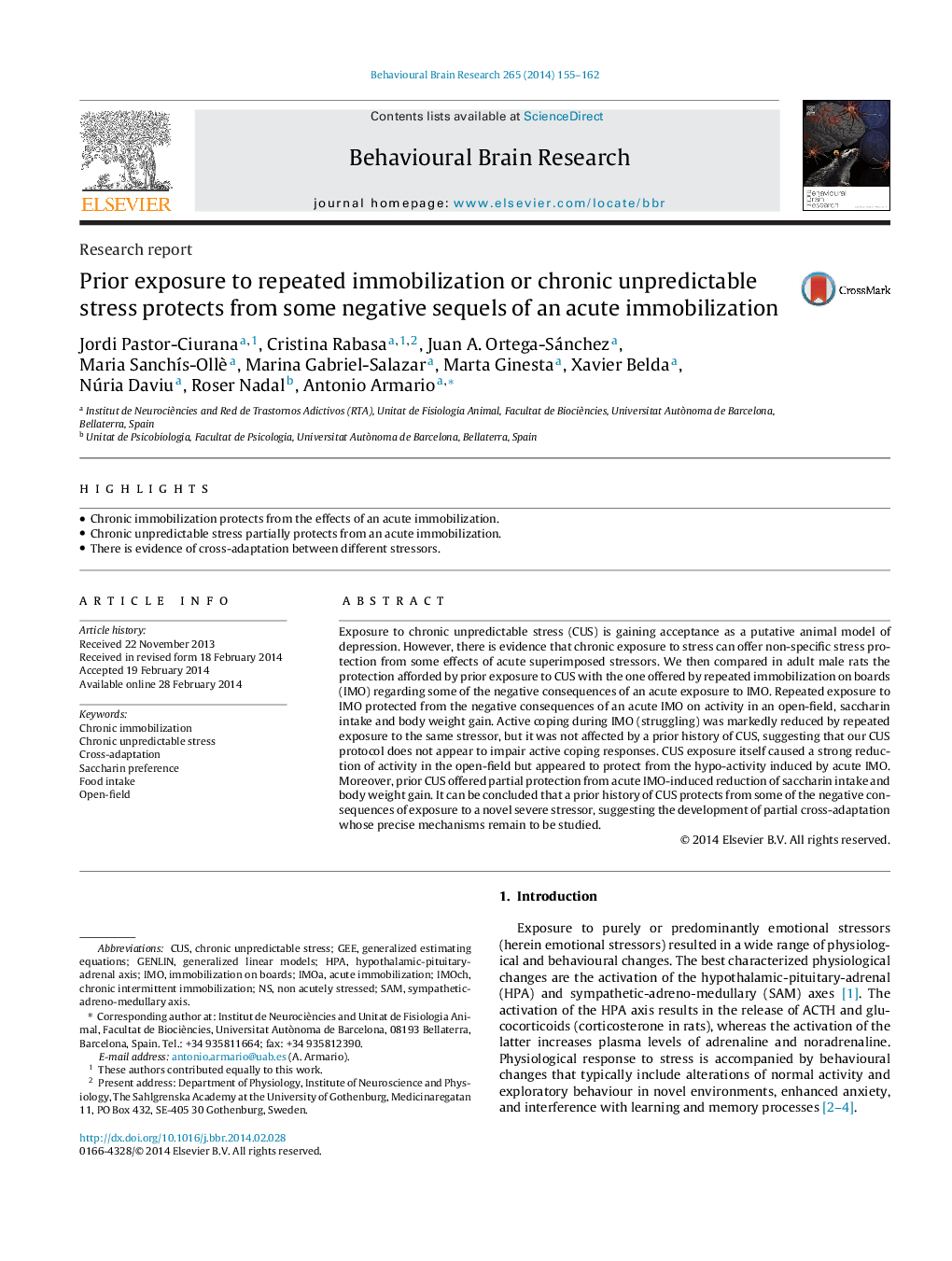| کد مقاله | کد نشریه | سال انتشار | مقاله انگلیسی | نسخه تمام متن |
|---|---|---|---|---|
| 6258308 | 1612967 | 2014 | 8 صفحه PDF | دانلود رایگان |
- Chronic immobilization protects from the effects of an acute immobilization.
- Chronic unpredictable stress partially protects from an acute immobilization.
- There is evidence of cross-adaptation between different stressors.
Exposure to chronic unpredictable stress (CUS) is gaining acceptance as a putative animal model of depression. However, there is evidence that chronic exposure to stress can offer non-specific stress protection from some effects of acute superimposed stressors. We then compared in adult male rats the protection afforded by prior exposure to CUS with the one offered by repeated immobilization on boards (IMO) regarding some of the negative consequences of an acute exposure to IMO. Repeated exposure to IMO protected from the negative consequences of an acute IMO on activity in an open-field, saccharin intake and body weight gain. Active coping during IMO (struggling) was markedly reduced by repeated exposure to the same stressor, but it was not affected by a prior history of CUS, suggesting that our CUS protocol does not appear to impair active coping responses. CUS exposure itself caused a strong reduction of activity in the open-field but appeared to protect from the hypo-activity induced by acute IMO. Moreover, prior CUS offered partial protection from acute IMO-induced reduction of saccharin intake and body weight gain. It can be concluded that a prior history of CUS protects from some of the negative consequences of exposure to a novel severe stressor, suggesting the development of partial cross-adaptation whose precise mechanisms remain to be studied.
Journal: Behavioural Brain Research - Volume 265, 15 May 2014, Pages 155-162
